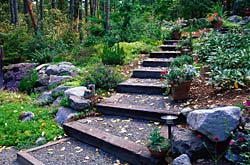HEPA Air Purifiers Improve Air Quality
See if We Have Top-Rated
Indoor Air Quality Professionals in Your Area

A HEPA air purifier is an appliance that combines the best air filtration system available to homeowners with added air purification power. By adding ultraviolet light systems (also called EGF systems), and activated charcoal to an already superior HEPA air filter, a HEPA purifier is hands down the most efficient appliance on the market when it comes to improving the air quality inside your home.
What Puts the HEPA in a HEPA Air Purifier?
The term HEPA has become a household name in America, even though it's no longer a trademark brand. What it actually stands for is High Efficiency Particulate Arrestor, referring to a HEPA filter's unique ability to filter out 99.97% of all airborne contaminants, including airborne dust, dust mite tailings, cigarette smoke, pollen, and a host of other allergens. Besides its incredible efficiency, the other feature worth talking about when it comes to HEPA filters is the size of the particulates they are able to filter. A HEPA filter can filter particulates that measure down to .3 micrometers in size. Might not mean much to you, but particles in the .3 micrometer range are the toughest to filter, and include some of the most dangerous pollutants for individuals that struggle with allergies, asthma, and chemical sensitivities.
As if HEPA Filtration wasn't Enough . . .
In addition to sporting the best filter across the board, a HEPA air purifier also contains added air purification equipment to ensure your indoor air is as clean as possible. Ultraviolet light systems, also referred to as Enhanced Germicidal Filtration systems (EGF), bring bacteria and virus-killing ultraviolet light to the equation. Filters aren't able to eradicate biological hazards completely since they only trap airborne particulates. The ultraviolet light in EGF systems picks up where the filter leaves off by drastically reducing the level of biological pollutants circulated through the unit. Besides UV light, a HEPA purifier usually comes with an activated carbon filter that increases the unit's ability to remove unpleasant odors and out-gassing chemicals from the air as well.
Ready to breathe easier? Have a HVAC contractor
Install an Air Purification System
You Get what You Pay for with a HEPA Air Purifier
The one thing to pay attention to when you start shopping for a HEPA purifier for your home is the quality of the unit you purchase. HEPA filter units, and especially air purifiers, are one thing you should not skimp on. Cheap HEPA air cleaners and purifiers are inferior in a number of ways. First of all, they run slower than higher-end models and in turn clean the air less (a good HEPA air purifier should exchange a room or home's air 10-15 times per hour). Secondly, cheaper models are often outfitted with short-lived, ineffective, carbon dust treated filters instead of quality activated charcoal ones. And finally, cheaper units just aren't built to last like quality models are. All this adds up to one thing: you're better off paying a little more now for a quality model so that you won't find yourself in the market for a replacement HEPA air cleaner just a few years down the road.
Talk to an Air Purification Specialist
If you're interested in purchasing a HEPA air purifier for your home, talk to a retailer, who specializes in these units, or to an HVAC technician experienced in their installation about which model is going to be right for you. HEPA air cleaners come in many different strengths and sizes, from small room units to whole home air purifiers. Talking to a pro is the only way to ensure you're getting the best purifier for your home, and in turn, get the maximum benefits when it comes to improving your home's indoor air quality.
More Tips & Advice For Your Home
- Related Articles
- Recent Articles

